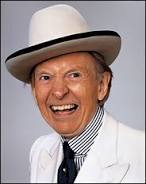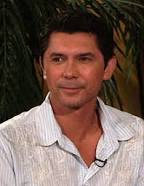The Third Bullet: A Bob Lee Swagger Book 8, by Author Stephen Hunter
Read by Buck Shirner
Click to get info on Amazon.com
John F. Kennedy was more than just a president. He was an event representing the worst tragedy to ever hit my generation. The assassination on Nov. 22, 1963 burned into my memory exactly where I was and what I was doing when someone yelled out "The President has been killed."
It was a horror greater than any of the many great geological tragedies, Tsunamis, hurricanes and tornadoes that have ripped through the world since. At least to me.
And feeding this memory is the deep seated belief that Kennedy was the victim of a conspiracy. He wasn't murdered by just one man, Lee Harvey Oswald, but rather by a group of men with a group of interests that ranged from:
The Mafia being angry they helped elect Kennedy in 1960 by working with then Mayor Richard J. Daley. They stole the election in Chicago from Richard M. Nixon, the Republican vice president. Instead of helping the Mafia by going easy, Kennedy appointed his brother Robert Kennedy who began a purge and aggressive prosecution of the mob
The opponents of Castro living in Florida who pushed the nation into the Bay of Pigs during the administration of Dwight D. Eisenhower that landed on Kennedy's lap, embarrassingly after it was screwed up, making Castro into a hero and later leading up to the Missile Crisis that brought the World to the verge of a nuclear war.
The CIA and that freak show FBI Director J. Edgar Hoover, a closet homosexual who passed judgment against all of his foes for far less, including the Rev. Martin Luther King Jr. and others. Hoover spied on Americans, violated their civil rights, planted false stories and explored embarrassing details including the sex lives of his targets. And King and Kennedy were both fooling around on their wives. Every reporter knew it and Hoover knew it.
And finally, there were those in the government who feared that Kennedy my draw down and lead America out of the Vietnam War.
The Warren Commission report that explored and whitewashed the assassination did so skirting all of these issues, and instead tried to convince the American people that all was safe and no conspiracy existed. It was bad enough that we just experienced the Sputnik episode that bred fear among our people. We didn't need to believe, they thought, that conspirators were manipulating our lives, politics, policies and government.
Jack Ruby, the mob-connected dance club owner who had offices near the Book Depository where they claimed all of the bullets came from the 6th Floor window, murdered Oswald before anyone could know the truth. The conspirators believed that killing Oswald would end suspicion but all any coverup does is make that suspicion worse.
When the Romans tried to erase any memory of Jesus, they built a small temple to the God Aphrodite on the hill where Jesus was crucified hoping that it would erase any memory of the Jewish rebel whose challenge to Judaism and Rome launched one of the world's most powerful religions, Christianity. But all that Temple did was confirm centuries later for the Queen of Constantinople where Jesus had died and they built the Church of the Holy Sepulchre on top of that small Temple. You can see it, and enter it when you enter the huge Christian Church memorial to Golgotha, the Hill of Calvary, and also marks where Jesus was buried.
All of this historical baggage fills my suspicious heart and mind as I read anything about JFK, and the Kennedy Assassination.
Hunter does a great job of weaving into all of this suspicious feeling that my generation will carry to its grave a theory that there had to be someone, and how it could have happened. One of the most disturbing and unexplained events was the murder of J.D. Tippet, the police officer, by Oswald. Why kill him. Why then walk up to him and shoot him point blank in his head as he laid on the ground?
I am not saying I believe Hunter's version, but it explores suspicions that have lingered. Maybe exaggerated a bit with literary license to make a more compelling novel, I am sure. But where there is smoke, there is fire and this book is fire built on the smoldering unresolved remains of the Kennedy assassination.
In three audio files, this book grabs your attention from the very first chapter when an old writer is murdered and his daughter reaches out to someone to get them to explore what she believes is the reason, all tied to the Kennedy assassination.
As we approach the 50 year anniversary of the assassination, the book is worth reading not just for its compelling fascination but for its ability to awaken many of the stirring suspicions that linger in all of our minds.
-- Ray Hanania
Monday, March 4, 2013
Back to Blood, by Tom Wolfe
Back to Blood by Tom Wolfe

 The book is read in such compelling style by Lou Diamond Phillips. Wolfe's writing is phenomenal, of course. He is a great writer. He writes in 3D. Literally. The story unfolds not just in one-dimensional telling of a story but in a complex multiplicity of levels and no one brings that out better than Phillips.
The book is read in such compelling style by Lou Diamond Phillips. Wolfe's writing is phenomenal, of course. He is a great writer. He writes in 3D. Literally. The story unfolds not just in one-dimensional telling of a story but in a complex multiplicity of levels and no one brings that out better than Phillips.
The story is about sex. Not a lot of sex, but some sex. And it is about a Cuban police officer who is having troubles being accepted by the White police establishment. He's caught between the rejection of both worlds, and that explodes when he finds himself trying to save a Cuban refugee fleeing Castro's Cuba.
Ameriican law is that if you can make it to American soil, the US must grant you sanctuary. But, if you are caught before you step foot on American soil, then back to Cuba you must go. Saving a refugee from hanging from a refugee boat mast puts the refugee on a boat back to Cuba, and that upsets everyone from the Cuban community, to his family Hai Camillo Camacho is his father (what a great name) to his girlfriend who dumps him and ends up hooking up with her employer, a sex therapist and later with a Russia mobster involved in fake paintings that our hero, Nestor Comacho.
Wolfe does a great job exploring the world of Cuban refugees in Florida, the sex trade and the Russian mobsters, as well as racism that exists so graphically.
Yet, Wolfe let's us down.
The book goes no where. There is no dramatic ending. It's almost as if he got to a chapter and just stopped writing. So depressing, yet so much interesting facts weaved into the story about the Cuban community, Cuban culture and race. And he goes into anatomical detail when referring to sex, a noun commonly used -- mons pubis.
Look it up folks. It's that kind of detail, instead of just saying "va-gi-nah" that makes the book so fascinating in detail.
I enjoyed it right up until Wolfe retired writing it. Abruptly. Leaving me hanging. Leaving me wanting more. Come on, Tom. Write. Make an ending that climaxes like the descriptions on every page of the novel.
I guess when you are a great novelist you can be lazy because that's the only way I can describe this audio book which began with such interest and just dropped dead in what should have been the middle of a plot. Instead, Wolfe takes you through an intricate tale involving the Cuban Community in Florida near Miami -- Hialeah, Little Cuba -- and then stops.
The story is about sex. Not a lot of sex, but some sex. And it is about a Cuban police officer who is having troubles being accepted by the White police establishment. He's caught between the rejection of both worlds, and that explodes when he finds himself trying to save a Cuban refugee fleeing Castro's Cuba.
Ameriican law is that if you can make it to American soil, the US must grant you sanctuary. But, if you are caught before you step foot on American soil, then back to Cuba you must go. Saving a refugee from hanging from a refugee boat mast puts the refugee on a boat back to Cuba, and that upsets everyone from the Cuban community, to his family Hai Camillo Camacho is his father (what a great name) to his girlfriend who dumps him and ends up hooking up with her employer, a sex therapist and later with a Russia mobster involved in fake paintings that our hero, Nestor Comacho.
Wolfe does a great job exploring the world of Cuban refugees in Florida, the sex trade and the Russian mobsters, as well as racism that exists so graphically.
Yet, Wolfe let's us down.
The book goes no where. There is no dramatic ending. It's almost as if he got to a chapter and just stopped writing. So depressing, yet so much interesting facts weaved into the story about the Cuban community, Cuban culture and race. And he goes into anatomical detail when referring to sex, a noun commonly used -- mons pubis.
Look it up folks. It's that kind of detail, instead of just saying "va-gi-nah" that makes the book so fascinating in detail.
I enjoyed it right up until Wolfe retired writing it. Abruptly. Leaving me hanging. Leaving me wanting more. Come on, Tom. Write. Make an ending that climaxes like the descriptions on every page of the novel.
Subscribe to:
Posts (Atom)